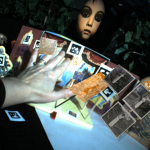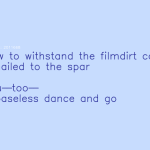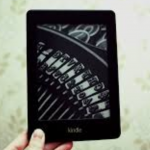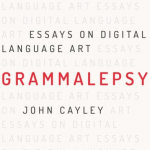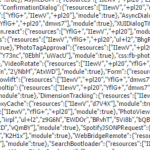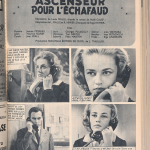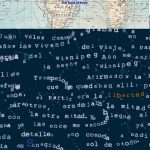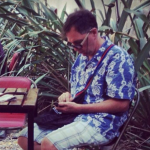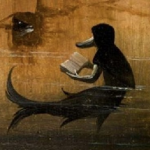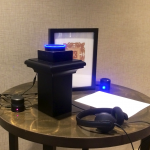electropoetics
In Praise of the (Post) Digital
Indirectly responding to Callus's and Aquilina's essay, Anna Nacher finds a 14th way of describing e-literature: employing the Deleuzean concept of a minor
style.
Literary Texts as Cognitive Assemblages: The Case of Electronic Literature
In a paper presented at the “Arabic Electronic Literature" conference in Dubai (February, 2018), N. Katherine Hayles considers born digital writing as a cognitive assemblage of technical devices and readerly, interpretive activity.
Minding the Electronic Literature Translation Gap
Agreeing that translation studies does well to address questions of transcoding, Nick Montfort further extends the project advocated by Maria Mencia, Soeren Pold, Manuel Portela (and our first respondent, Belgian Poet Laueate Jan Baetans). A look at explorations of the topic in early e-lit turns up longstanding interests in the translinguistic, transcreational, the metrical, material, and contextual. Montfort offers this itemization not just to enlarge a specific list and topology for translation studies, but to show that the concept of literary translation almost certainly needs to be exploded and reworked.
Grammalepsy: An Introduction
Cayley's book, Grammalepsy, is the first in the Bloomsbury series on Electronic Literature, due out this year (2018). A symptom of language whose therapeutic potentialities are passed over by commercial digitization, the term “Grammalepsy” suggests a lapse in designation. Cayley's book can remind us of the generative difference in any act of signification, in writing on a page no less than coding on silicon. There is no reason why the latter, so different from our neurological circuits, should be any better than any other conventional designation at encapsulating and communicating thought. The fact that literary theorists (and also digital makers like Cayley) place their work and thought self-consciously in the margins of what is now a digital consensus, suggests the presence of a long-standing (and continuing) literary counter-history to the Digital Humanities, that are too often characterized by datafication, single-entendre designation, and instrumentalist tendencies.
Creating New Constraints: Toward a Theory of Writing as Digital Translation
In response to Mencia, Pold, and Portela, Belgian poet and scholar Jan Baetans suggests that we might view the field of trans-medial literature as an offshoot of translation studies (and not the reverse). In any case, whether we approach e-lit from a medial or linguistic standpoint, scholars do well to observe a "merger of translation and adaptation studies."
Riposte to Jan Baetens, Photo Narratives and Digital Archives, or The Film Photo Novel Lost and Found
In response to Baetans's essay, David Roh sees an occasion for moving digital literary studies beyond the archive toward a a living repository of anarchistic, ongoing communitarian activity with a "resurgent cultural impact."
Electronic Literature Translation: Translation as Process, Experience and Mediation
"[T]ranslation is merely a preliminary way of coming to terms with the foreignness of languages to each other." (Walter Benjamin, "The Task of the Translator" [1921])
Postcinematic Writing
Adrian Miles (1960 — 2018) was an early theorist, practitioner and teacher of cinematic hypertext and networked, "writerly" video. In memory of his innovative research in these fields, ebr presents this short dialogue between Adrian and founding ebr publisher Mark Amerika. The text is republished from META/DATA: A Digital Poetics, by Mark Amerika, with permission from The MIT Press.
Getting Lost in Narrative Virtuality
Repetition, gestural abstraction and depictions of noise; an absence of narrative causation, a multiplicity of micro-narratives and opacity of material communications: The digital narrativity observed and created by Will Luers is equally applicable to the films of Stanley Kubrick or the paintings of Hieronymous Bosch - which implies a longer continuity (and less radical transformation?) than we might have expected. Indeed, Luers argues that "networks and nonlinear systems" might better be understood as "something deep in our brains," even as narrative may be regarded "as a necessary construct, but not the complete picture of reality."
Speaking to Listening Machines: Literary Experiments with Aural Interfaces
Reading practices have changed along the course of history. Before the ‘democratization’ of the written word - from Homer's Iliad to the medieval troubadours and to more recent public and private oral reading traditions -, reading has long been associated with listening. Today, in the age of algorithms and ‘smart’ interfaces, the sharing of language between humans and computational devices is increasingly ubiquitous and, with the standarization of artificial intelligence systems like Siri, Cortana, and Google Now, we are starting to speak and to listen to machines. In the field of digital literary creation, one example of aesthetic reflection on the questions raised by such networked ‘smart’ interfaces is John Cayley's The Listeners (2015), "a linguistic performance — transacted by visitors and Amazon’s voice-activated Artificial Intelligence and domestic robot, Alexa" (Cayley, 2015b). Through an analysis of The Listeners, articulated with Bernard Stiegler’s notion of the digital pharmakon, this paper aims to reflect on the encounter between literature and digital technologies. Three ideas will be highlighted: 1) the ways in which the technical, economic and political layers that constitute our digital devices pre-determine their usage (how they operate and are operated); 2) the automatic processing of language and orality as interfaces of mediation between humans and “smart” devices; 3) the literary implications of aurality and aurature.
